In 2020, Asheville made history, electing its first all-female City Council. Four years later, that historic achievement will come to an end as four of the six candidates vying for three open seats are men.
Housing, diversifying the city’s funding streams, living wages and reparations are among the top concerns for this year’s Council hopefuls, including incumbents Kim Roney and Sage Turner. Both were first elected to Council in 2020 and placed first and second, respectively, in the March primary.
Three of the remaining four candidates — Charles “CJ” Domingo, Kevan Frazier and Tod Leaven — are new to politics. Meanwhile, Roberto “Bo” Hess previously ran in 2022 for the U.S. House of Representatives in District 11.
In addition to written responses, all candidates were asked a series of “Yes/No” questions. Some voiced frustration over this aspect of the Voter Guide. And in two instances, candidates went beyond the “Yes/No” format. Out of fairness, Xpress subsequently offered the remaining four candidates an opportunity to elaborate on one of their four “Yes/No” responses. Each candidate took the opportunity to expand on an issue of their choice, except for Roney, who instead offered the following statement: “I appreciate yes/no questions because the job of an elected includes voting yes or no, even though creative solutions require thinking beyond binary.”
Editor’s note: Xpress reached out to this year’s candidates prior to the devastation our community experienced from Tropical Storm Helene. Please keep this in mind as you review our 2024 Voter Guide.
Charles “CJ” Domingo
Website: cj4avl.com
Occupation: Operations supervisor
Previous candidacy or offices held: None
Amount of money raised: About $2,400
Top three donors: My biggest donors have been family and friends.
Residents have voiced frustration over several recent votes — the Business Improvement District (BID), McCormick Field, Haw Creek rezoning. Some community members are confused and even more cynical about the effectiveness of civic engagement with local government. What would you say to them?
I understand the frustration and cynicism surrounding these votes because that underlying dissatisfaction is why I am running for City Council. I believe that we need more open, transparent and accountable communication from our decision-makers. As a voter, I understand that unpopular choices might be necessary; however, if that’s the case, I expect a thorough explanation. As a candidate, I want to restore trust that our government reflects the needs and the will of the community. If you feel unheard, you are not alone. Please, join me in pushing for a better government for Ashevilleans.
What do you see as the N0. 1 hindrance to building affordable housing in the city, and what can you do as a Council member to overcome it?
To protect Asheville’s environment, we don’t want to encourage excessive sprawl. This means that we need to look at building medium- and high-density housing near downtown and along our transportation corridors. Therefore, the largest hurdle we face is the high costs of land and construction. To overcome, I advocate for zoning reforms to better reflect our needs in 2024. We want to open more land to improvement, to encourage more missing-middle housing and to streamline our development process. Through better framework and incentives, we can create a market that meets the needs of all Asheville residents.
What is a key initiative that you want to see Asheville City Council support to address the homelessness issue?
We must ensure that our programs are backed with robust and well-coordinated wraparound services, including mental health support, addiction treatment and job training, followed by available transitional and supportive housing. I recently had an opportunity to hear from some of the folks who run two of our most effective homeless programs, and they both raised points of caution regarding our city’s embrace of housing first — we cannot build a program big enough to accommodate everyone, all at once. We must have reliable throughput that gets folks back to long-term recovery and self-sufficiency.
One of the main controversies over the implementation of the Business Improvement District (BID) is the role of future safety ambassadors. What should be the primary role and responsibility of BID safety ambassadors?
Safety ambassadors should be tasked with acting as friendly, highly visible points of contact for tourists, businesses and residents. They should be able to assist with providing information, assisting with directions and reporting maintenance and/or safety concerns. Ambassadors should never be involved in enforcement but should support a welcoming and safe environment for all. Their presence should enhance community trust and quality of life.
Our city does not have many of the diversified funding streams as other cities of similar or larger sizes. How do you think the City of Asheville could diversify its funding streams to better address the community’s growing needs?
Obviously, we could talk about new taxes, but an alternative that I would like to explore is for the city to offer additional services at a premium fee. One example: As a former City of Asheville employee, I would be compelled to chase off pop-up vendors setting up shop on city property without a merchandising permit. What if we did have the option to permit impromptu vendors to sell on closed streets during large events? There are plenty of ways we could explore to proactively bring profits to the city’s coffers without taxing the working class.
This fall, locals will be voting on the city’s proposed general obligation bonds referendum: $20 million each for housing, transportation, parks and recreation, and public safety. If all four pass, totaling $80 million, what would be your top project for each bond?
My referencing below comes from the city’s bond guide.
- Housing affordability: Purchase land and existing home for future affordable housing. This will allow us to be more proactive and deliberate in creating affordable housing.
- Parks and recreation: Rebuild/reopen Malvern Hills Pool. It never should have been allowed to fall into disrepair.
- Transportation: Street resurfacing, but in least affluent neighborhoods first; folks with smaller budgets can least afford the costs of bad roads.
- Public safety facilities: These are all about equal, but I would favor the South Asheville Fire Station, since that region has had so much new development.
Please respond “Yes” or “No” to the following questions:
Do you support the physical removal of homeless encampments on public property?
Yes
Will you commit to approving a revenue-neutral tax rate in 2025?
No: I will pursue a balanced budget, but given the bonds on the ballot this November, it would be irresponsible to promise that we can achieve a neutral rate for 2025.
Is the city moving fast enough to renovate its water system?
No
Should the city invest more in expanded bus routes?
Yes
List your top three funding priorities from the following list: housing, raises for Asheville Police Department and Asheville Fire Department staff, sidewalks, Thomas Wolfe Auditorium, public transportation, reparations.
- Housing
- Raises for APD and AFD
- Public transportation
Kevan Frazier
Website: kevan4avl.com
Occupation: Higher education administrator at Western Carolina University and small-business owner with Well Played Board Game Café
Previous candidacy or offices held: This is my first time running for public office.
Key endorsements: Asheville for All
Amount of money raised: $21,460
Top three donors: Portia Sutton, Issac Rockoff, Jack Cecil.
Residents have voiced frustration over several recent votes — the Business Improvement District (BID), McCormick Field, Haw Creek rezoning. Some community members are confused and even more cynical about the effectiveness of civic engagement with local government. What would you say to them?
When Council is at its best, it finds solutions that move our city forward and addresses the breadth of concerns brought up from the community. We used to call this “compromise,” but that word has been commandeered to falsely mean weak. In a city of 95,000, we are rarely going to all agree, but if we don’t find middle ground and move forward, we will wither as a community. In the cases noted, community engagement made them better. There will be some hard noes and some hard yeses, but most projects will be compromises, and civic engagement is what can move “OK” to “good” and even “great.”
What do you see as the No. 1 hindrance to building affordable housing in the city, and what can you do as a Council member to overcome it?
The main hindrance is our Unified Development Ordinance (UDO). It prevents us from building more affordable housing options such as duplexes and town houses. The intricate web of development ordinances makes it costly and difficult to build in Asheville. My focus would be to bring Council colleagues on board with hiring a firm to work with our Planning Department to update our UDO; and rather than wait for a complete rewrite, there are actions that Council can also take now, such as allowing flag lots [which allow two homes to be situated along the same street frontage, with one home behind the other], which would let us move forward now as we do the rest of the work.
What is a key initiative that you want to see Asheville City Council support to address the homelessness issue?
A key initiative that I would like to see City Council support is the continuation of the Continuum of Care model that it and Buncombe County adopted within the last 12 months. It coordinates service providers such that people experiencing homelessness can better access resources for assistance. The city needs to give it time to strengthen and succeed. The city also needs to work with providers to locate and develop additional short-term and long-term housing options. This is an area where the city needs to support the professionals already doing good work and not try to reinvent the wheel.
One of the main controversies over the implementation of the Business Improvement District (BID) is the role of future safety ambassadors. What should be the primary role and responsibility of BID safety ambassadors?
The city has decided on the term “Community Stewards.” I support that their roles will be to provide directions and assistance as well as serve as on-call safety companions for downtown workers and residents. They will call for assistance when trash needs emptying or graffiti needs to be removed. They will help connect people experiencing homelessness or a mental health crises to resources such as community responders and community paramedics. They will not serve any kind of law enforcement or security roles. They will not be armed in any way and will have anti-racist, equity, mental health, first aid and deescalation training.
Our city does not have many of the diversified funding streams as other cities of similar or larger sizes. How do you think the City of Asheville could diversify its funding streams to better address the community’s growing needs?
I would like the city to focus on two areas to expand revenue. The first is to play a more active role in recruiting and stewarding commercial development that supports Asheville’s strategic comprehensive plan goals. This includes buildings to house commercial and retail businesses, manufacturing and housing. The other area is to build a more significant grants acquisition program. The city does not have a robust program, which causes it to lose out on infrastructure dollars, especially from state and federal programs. This could pay for itself and provide much-needed money for infrastructure such as water and stormwater systems.
This fall, locals will be voting on the city’s proposed general obligation bonds referendum: $20 million each for housing, transportation, parks and recreation, and public safety. If all four pass, totaling $80 million, what would be your top project for each bond?
My first priority is for the city to complete all projects from the 2016 bonds. It has taken too long to complete these projects. In regards to the 2024 bonds, I do not have a top priority for each bond. If the voters approve the bonds, then the city’s obligation is to complete ALL of the projects that it has outlined. That’s the promise being made, and that’s the promise that needs to be kept. We also need to have a plan to complete these projects in a timely manner so that inflation doesn’t eat away too much at the principal.
Please respond “Yes” or “No” to the following questions:
Do you support the physical removal of homeless encampments on public property?
Yes
Will you commit to approving a revenue-neutral tax rate in 2025?
No: I commit to a financially reasonable tax rate that is sustainable by property owners so that they can plan and budget predictably for the next four years.
Is the city moving fast enough to renovate its water system?
No
Should the city invest more in expanded bus routes?
Yes
List your top three funding priorities from the following list: housing, raises for Asheville Police Department and Asheville Fire Department staff, sidewalks, Thomas Wolfe Auditorium, public transportation, reparations.
- Housing
- APD/AFD salaries
- Reparations
Bo Hess
Website: electbohess.com
Occupation: Social worker
Previous candidacy or offices held: Candidate for U.S. House, N.C.-11 (2022)
Key endorsements: N.C. AFL-CIO, WNC Sierra Club, Equality North Carolina, the Police Benevolent Association, Asheville Firefighters Association
Amount of money raised: $9,152 (as of Sept. 16)
Top three donors: Steven Baumohl, Susie Hess, Joseph Spatarella
Residents have voiced frustration over several recent votes — the Business Improvement District (BID), McCormick Field, Haw Creek rezoning. Some community members are confused and even more cynical about the effectiveness of civic engagement with local government. What would you say to them?
I completely understand the frustration. Many residents feel their voices aren’t being heard by city leaders, and this sentiment is echoed across Asheville. I’ve heard it while door knocking in every part of Asheville — people feel disconnected from the decision-making process. What I’d say is this: Civic engagement is vital, and your voice does matter. Get involved by joining a board, writing letters, supporting a candidate who aligns with your vision and voting. We need engaged citizens to ensure local government works for everyone. As a citizen and a candidate, I am pushing for a more inclusive, transparent process.
What do you see as the No. 1 hindrance to building affordable housing in the city, and what can you do as a Council member to overcome it?
The biggest hindrance to building affordable housing in Asheville is restrictive zoning and land-use regulations that limit higher-density, affordable housing like duplexes and apartments. These regulations, combined with high construction costs and limited available land, make it difficult to develop housing that meets the needs of working families. At times community resistance to density can delay or prevent projects. To overcome this, we need to update our zoning laws, streamline the approval process and foster collaboration between the city, developers and residents to create housing that is accessible and affordable. Delayed housing is denied housing; let’s get this done together.
What is a key initiative that you want to see Asheville City Council support to address the homelessness issue?
A key initiative I want Asheville City Council to support is a holistic, empathetic approach to homelessness that focuses on outcomes and long-term solutions. This means building more housing across the spectrum, from emergency/low-barrier shelters to permanent affordable housing. It involves enhancing our public safety infrastructure by expanding street outreach teams made up of case managers, clinicians and support staff who can meet with and assist every resident experiencing homelessness. Strengthening our mental health and addiction services is essential to this initiative, ensuring that those most vulnerable have access to the care and resources they need to thrive.
One of the main controversies over the implementation of the Business Improvement District (BID) is the role of future safety ambassadors. What should be the primary role and responsibility of BID safety ambassadors?
The primary role of BID safety ambassadors should focus on enhancing the experience of visitors and tourists by providing directions, information about public amenities such as restrooms and trash cans, and promoting local businesses and restaurants. They should act as friendly guides who ensure that the downtown environment feels welcoming and safe. Additionally, safety ambassadors should be equipped to interface with public safety professionals during situations involving mental health crises or homelessness. Ideally, I will advocate for them to receive crisis intervention training and basic mental health first aid to handle these situations with empathy and care.
Our city does not have many of the diversified funding streams as other cities of similar or larger sizes. How do you think the City of Asheville could diversify its funding streams to better address the community’s growing needs?
I am voting yes and advocating for the four general obligation bonds on the ballot this November to fund parks, public safety, housing and transportation. If the referendums are passed, they will provide essential upgrades and maintenance for our city. Implementing dynamic parking garage fees and expanding city-owned parking revenue streams could also diversify funding. Furthermore, we should collaborate with other cities and municipalities to lobby Raleigh for taxes that better suit our community’s unique needs. We must take proactive steps to unburden our most vulnerable and ensure we meet our city’s growing demands.
This fall, locals will be voting on the city’s proposed general obligation bonds referendum: $20 million each for housing, transportation, parks and recreation, and public safety. If all four pass, totaling $80 million, what would be your top project for each bond?
For housing, my top priority is using the investment land-use fund to build affordable apartments on city-owned land, ensuring we increase housing options. For public safety, I’d prioritize upgrading all municipal fire stations and investing in updated equipment and technology to support our public safety professionals. For transportation, expanding and improving bus routes is critical; but my primary focus is on providing covered bus stops to protect residents from harsh weather while commuting. Finally, for parks and recreation, we need to invest in building and maintaining public pools, providing accessible and enriching recreational opportunities for all.
Please respond “Yes” or “No” to the following questions:
Do you support the physical removal of homeless encampments on public property?
Yes and no: We must provide low-barrier shelters, long-term housing and wraparound services to people experiencing homelessness.
Will you commit to approving a revenue-neutral tax rate in 2025?
Yes
Is the city moving fast enough to renovate its water system?
No
Should the city invest more in expanded bus routes?
Yes
List your top three funding priorities from the following list: housing, raises for Asheville Police Department and Asheville Fire Department staff, sidewalks, Thomas Wolfe Auditorium, public transportation, reparations.
- Sidewalks
- Raises for APD and AFD
- Thomas Wolfe Auditorium
Todd Leaven
Website: todleaven4asheville.com
Occupation: Attorney
Previous candidacy or offices held: None — first time running for office
Key endorsements: Asheville for All, N.C. Police Benevolent Association, Land of Sky Association of Realtors
Amount of money raised: $84,526
Top three donors: Myself (over $40,000, Leaven Law Firm, legal), Chris Dunbar (Blue Ridge Power, solar energy), Joshua Bartlett (Sierra Nevada Brewing Co., beer)
Residents have voiced frustration over several recent votes — the Business Improvement District (BID), McCormick Field, Haw Creek rezoning. Some community members are confused and even more cynical about the effectiveness of civic engagement with local government. What would you say to them?
To be fair, the cornerstone of democracy is always compromise. Having said this, if it seems that your elected officials never listen to you and always side against your interests, then you need to start voting for different candidates. Asheville is a diverse city with many different people in it. Some people are loud, while others are silent. Some people vote, while others do not. In the end, Asheville will get exactly what it deserves — democracies always do! If you want a louder voice, you have to unite.
What do you see as the No. 1 hindrance to building affordable housing in the city, and what can you do as a Council member to overcome it?
NIMBYism. Obviously, the UDO needs rewriting, but the city has known that for years, and yet it still stands. I get it — when people move here they take a mental picture of the city they fell in love with. Any derivation from that picture is intrinsically seen as a degradation. It is hard to expect City Council to move on approving projects when they are continually pressured to build “anywhere but this particular neighborhood.” The city needs to do a much better job illustrating how a greater concentration of development in centralized areas such as downtown helps everyone.
What is a key initiative that you want to see Asheville City Council support to address the homelessness issue?
The unhoused issue is a housing issue. We need to support significantly more development of affordable housing. The fact that development is such a four-letter word in Asheville has left the city scrambling to treat the symptoms of homelessness instead of addressing the root cause. Isn’t it wonderful that the same initiative (affordable housing) that addresses homelessness also makes the city more walkable and bikeable, makes public transportation cheaper and more accessible, promotes more green spaces, saves our tree canopy and allows the wonderful people who serve our city to actually live in our city?
One of the main controversies over the implementation of the Business Improvement District (BID) is the role of future safety ambassadors. What should be the primary role and responsibility of BID safety ambassadors?
The main controversy of the BID should be the fact that the city has so inadequately supported our own downtown that it must pay for these services itself, as a self-imposed tax, to prevent downtown decline. The name “safety ambassador” is just weird. I do not see how people informing tourists where certain services are located at, what is playing at our local performing arts venues, which restaurants need reservations, is controversial — especially if they are cleaning the sidewalks while they are at it. I do not support giving them guns or letting them ticket cars.
Our city does not have many of the diversified funding streams as other cities of similar or larger sizes. How do you think the City of Asheville could diversify its funding streams to better address the community’s growing needs?
Other cities have more industry. Asheville can attract nontourism business, but we need to realize that this also comes with a cost. Everyone wants higher-paying, nontourism-based industry until it becomes an option, and then we seem to protest it. I am not saying we need Raytheon or BMW, but we need to find industries that we won’t protest and then court them to come to our city. Working-aged people who need jobs need to have as big of a voice as the wealthy retirees. Somewhere out there is an environmentally sustainable solution that serves all of Asheville.
This fall, locals will be voting on the city’s proposed general obligation bonds referendum: $20 million each for housing, transportation, parks and recreation, and public safety. If all four pass, totaling $80 million, what would be your top project for each bond?
- Housing: Make investments in affordable housing
- Transportation: Road improvements and resurfacing across the city
- Parks and Recreation: Rebuild Malvern Hills Pool
- Public Safety: Acquire land/buildings for new facilities
Please respond “Yes” or “No” to the following questions:
Do you support the physical removal of homeless encampments on public property?
Yes — when serious matters arise, which could lead to significant health and safety risks.
Will you commit to approving a revenue-neutral tax rate in 2025?
No
Is the city moving fast enough to renovate its water system?
No
Should the city invest more in expanded bus routes?
Yes
List your top three funding priorities from the following list: housing, raises for Asheville Police Department and Asheville Fire Department staff, sidewalks, Thomas Wolfe Auditorium, public transportation, reparations.
- Housing
- Raises for APD and AFD
- Public Transportation
Kim Roney
Website: kimroney4asheville.com
Occupation: Music educator, small-business owner
Previous candidacy or offices held: Current member, Asheville City Council
Key endorsements: Key endorsements: Sierra Club, WNC Central Labor Council and AFL-CIO, Equality North Carolina, Center for Biological Diversity, Teamsters Local 61, IAFF Local 332 Fire Fighters, the Rev. Amy Cantrell, coach Connor Jardeleza, former Council member Gordon Smith, Register of Deeds Drew Reisinger, LaVie Montgomery, Matt Schnable and Mark Capon of Harvest Records, Gene & Traci Ettison, Frank Kracher, Tiffany & Jeff Santiago and neighbors like you!
Amount of money raised: $6,126
Top three donors: Kendall Oliver, Karen MacNeil, Charles Huguenard
Residents have voiced frustration over several recent votes — the Business Improvement District (BID), McCormick Field, Haw Creek rezoning. Some community members are confused and even more cynical about the effectiveness of civic engagement with local government. What would you say to them?
Keep it coming! I welcome civic engagement, seeing that when neighbors bring their experience to the table, public input improves decisions like tree canopy protections, defending human and civil rights, preventing the food-sharing ban and leveraging for living wages. Even given the limitations of my role, I have courage to say “no” when needed and leadership to say “yes” to affordability, public safety, and climate and neighborhood resilience. I value public trust and advocate for transparency, including eliminating Council’s behind-the-scenes check-ins, so our community can share the work to take better care of each other and our mountain home.
What do you see as the No. 1 hindrance to building affordable housing in the city, and what can you do as a Council member to overcome it?
Many factors can drive up costs of land and construction, like zoning, profit margins, and supply and demand. Solution No. 1: partnership. When the city leverages land, incentives and resources like the Housing Trust Fund, partners can strategize to include deeper affordability. Solution No. 2: We can restructure affordability standards for incentives. This might mean instead of 20 apartments in a 100-unit building being attainable for people making $50,000-plus a year, we might only get 10-15 apartments for people making $30,000 and less, but then we’d be addressing disparities and meeting needs of residents and families excluded by current housing policies.
What is a key initiative that you want to see Asheville City Council support to address the homelessness issue?
I’m grateful community responders are now the primary responders to encampments; but without supportive housing and shelter capacity, where are they meant to send our unhoused neighbors? Migration into ill-resourced neighborhoods shouldn’t be the answer, but it’s happening. If our community follows the National Alliance to End Homelessness report recommendations, we’ll have a data-driven ecosystem of care including year-round emergency shelter; shelter where families stay together; supportive housing for vulnerable neighbors; and a system designed for keeping neighbors housed. If not, we risk continuing the fractured systems perpetuating exponential growth of homelessness. Join the new Continuum of Care as we design an ecosystem of care.
One of the main controversies over the implementation of the Business Improvement District (BID) is the role of future safety ambassadors. What should be the primary role and responsibility of BID safety ambassadors?
The anticipated role of community ambassadors: visible presence, connecting tourists and residents to resources, cleaning, landscaping and reporting issues. For true public safety, our community needs the following: uniquely qualified staff capacity for serious issues of homelessness, substance use and behavioral health crises; living wages for city first responders and sanitation staff; and data-informed crime prevention. Filling service gaps created by prioritizing the BID will require additional tax resources, which is why I must say no to revenue-neutral tax rates in this survey. The BID is expensive because an unelected board overseeing $1.2 million in new taxes will contract with third-party management.
Our city does not have many of the diversified funding streams as other cities of similar or larger sizes. How do you think the City of Asheville could diversify its funding streams to better address the community’s growing needs?
More of our hotel occupancy taxes must be allocated to local infrastructure instead of advertising. On the Policy, Finance and Human Resource Committee, I consistently advocate for this through Council’s legislative agenda.
Dedicated funding for public transit should be connected to a Regional Transit Authority to improve services and reduce cost duplication.
Asheville should support and learn from the Eastern Band of Cherokee’s decriminalization of marijuana. I think the ABC Board is the right and ready model for success so North Carolina can realize the benefits of job growth, agriculture industry, education, health and wellness, and a robust, new tax revenue.
This fall, locals will be voting on the city’s proposed general obligation bonds referendum: $20 million each for housing, transportation, parks and recreation, and public safety. If all four pass, totaling $80 million, what would be your top project for each bond?
- Parks and rec: Pools, including Malvern Hills, Rec Park and neighborhood recommendations for Walton Street.
- Housing: The Housing Trust Fund, backed with strategies leveraging deeply affordable rentals on the Talbert lot as well as homeownership, including recommendations from the Community Reparations Commission.
- Transportation: Equitable access through road resurfacing and the long-awaited Smith Mill Creek Greenway.
- Public safety: A new, LEED-certified public safety station for Oakley, which should be leveraged to include a resilience hub with solar and battery system, food pantry and resources identified by the neighborhood. Our fire stations must be on the list due to critical needs.
Please respond “Yes” or “No” to the following questions:
Do you support the physical removal of homeless encampments on public property?
No
Will you commit to approving a revenue-neutral tax rate in 2025?
No
Is the city moving fast enough to renovate its water system?
No
Should the city invest more in expanded bus routes?
Yes
List your top three funding priorities from the following list: housing, raises for Asheville Police Department and Asheville Fire Department staff, sidewalks, Thomas Wolfe Auditorium, public transportation, reparations.
- Housing
- Raises for APD and AFD
- Reparations
Sage Turner
Website: SageforAsheville.com
Occupation: Finance and project manager
Previous candidacy or offices held: Current Asheville City Council member
Key endorsements: Sierra Club, Police Benevolent Association, Asheville Firefighters Association, Asheville for All, Teamsters Union, Land of the Sky Association of Realtors
Amount of money raised: $5,330
Top three donors: Jen and Jim Lauzon, Joe Minicozzi, Bob Deutsch
Residents have voiced frustration over several recent votes — the Business Improvement District (BID), McCormick Field, Haw Creek rezoning. Some community members are confused and even more cynical about the effectiveness of civic engagement with local government. What would you say to them?
Community input drastically impacts the results! I fought for the changes neighbors wanted at Haw Creek, working directly with the neighborhood and the developer to remove a massive retaining wall, relocate the entrance, save trees, etc. For the BID, I fought for what I heard: equal parts renters and owners, public/open meetings, tourism to be off, homeless service provider to be added. McCormick Field will be renovated, our team license retained, and we kept baseball in our community for a total cost of $500,000 a year. Then we added more events to completely cover the new expenses. Home run!
What do you see as the N0.1 hindrance to building affordable housing in the city, and what can you do as a Council member to overcome it?
Cost to produce affordable units. We need improved zoning regs, more incentives and continued subsidization of projects to create more affordable units. The cost of land, interest rates and the cost of financing, as well as the cost of materials and getting projects designed and approved all greatly impact our community’s ability to produce affordable housing. Our policies and approaches need to be nimble and ready to respond to market conditions we cannot control. We need to be creative in our thinking, steadfast in our efforts, always exploring new tools and accountable in our implementation. We need to follow the three Ps: protect, preserve, produce.
What is a key initiative that you want to see Asheville City Council support to address the homelessness issue?
The solution to homelessness is housing. We need new housing for all levels of income and with new models for supporting folks at their various life stages. We are making great progress. We now know that 2025 rents are expected to come down 10% for the first time in six years; this is a result of our intense housing efforts. We also have two new permanent supportive housing projects underway. Our next big move should be a low-barrier/high-access shelter in a clinical setting (not in a neighborhood) with 24/7 services, open beds and tools to succeed.
One of the main controversies over the implementation of the Business Improvement District (BID) is the role of future safety ambassadors. What should be the primary role and responsibility of BID safety ambassadors?
The term is “community stewards,” and this is the description we are currently using in the RFP process: They are to be trained in anti-racist, mental health, first aid and deescalation and have experience with folks experiencing poverty. They will not function as security or law enforcement and will not carry weapons of any kind. They will connect people with services like community responders and community paramedics or folks in need of directions or help. They will act as safety companions for downtown workers and residents as needed and have a regular, visible presence.
Our city does not have many of the diversified funding streams as other cities of similar or larger sizes. How do you think the City of Asheville could diversify its funding streams to better address the community’s growing needs?
Water system: The N.C. General Assembly awards water system and infrastructure funding. McDowell County was awarded both money to assess their system and $11 million to work on it in 2024. Transit: Until we can instate a municipal or county $0.025 sales tax for transit, we will need to focus on increasing ridership; increasing ridership leads to more federal funding opportunities. Partnerships: We can leverage dollars for greater impacts when we work together. In my first term, we created and improved partnerships with the county, N.C. Department of Transportation, with more affordable housing developers, with Dogwood Health Trust, with lessors like the Asheville Tourists baseball team, AARP/AOB.
This fall, locals will be voting on the city’s proposed general obligation bonds referendum: $20 million each for housing, transportation, parks and recreation, and public safety. If all four pass, totaling $80 million, what would be your top project for each bond?
- Housing: I want to focus most of the bonds on equity and generational wealth-building strategies. This includes homeownership, preservation, repair programs, down payment assistance, land trusts, partnerships on town homes and condos, low-interest loans, affordable ADU guides, backyard buildings and helping AFD/APD become city homeowners.
- Public safety: Facilities and equipment needed to provide better quality of life; safety improvements; and upgrades to buildings used by first responders.
- Transportation: road resurfacing
- Parks: aquatic facilities! An indoor facility for the community and rebuilding Malvern Hills Pool.
Please respond “Yes” or “No” to the following questions:
Do you support the physical removal of homeless encampments on public property?
Yes
Will you commit to approving a revenue-neutral tax rate in 2025?
No
Is the city moving fast enough to renovate its water system?
No
Should the city invest more in expanded bus routes?
Yes — to expanding frequency; no — to expanding new routes.
List your top three funding priorities from the following list: housing, raises for Asheville Police Department and Asheville Fire Department staff, sidewalks, Thomas Wolfe Auditorium, public transportation, reparations.
- Housing
- Raises for first responders
- Reparations (has dedicated source)
Editor’s note: To look up which races you will vote for, visit avl.mx/6nq.


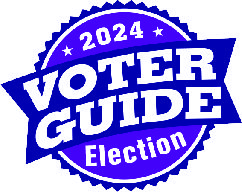

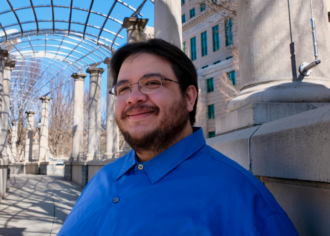

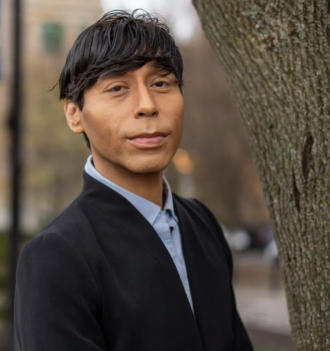
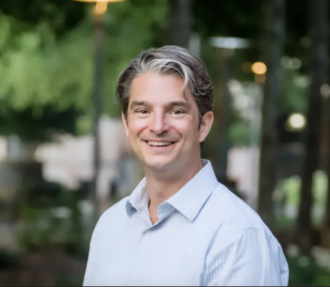
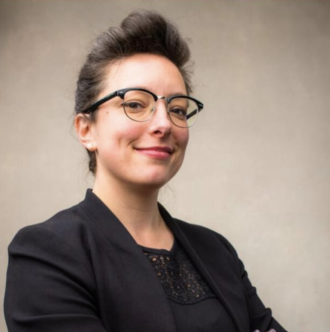
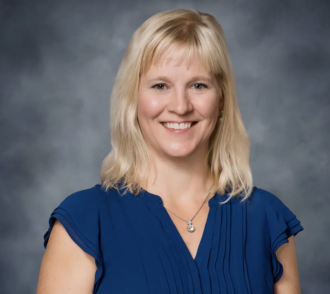

Before you comment
The comments section is here to provide a platform for civil dialogue on the issues we face together as a local community. Xpress is committed to offering this platform for all voices, but when the tone of the discussion gets nasty or strays off topic, we believe many people choose not to participate. Xpress editors are determined to moderate comments to ensure a constructive interchange is maintained. All comments judged not to be in keeping with the spirit of civil discourse will be removed and repeat violators will be banned. See here for our terms of service. Thank you for being part of this effort to promote respectful discussion.